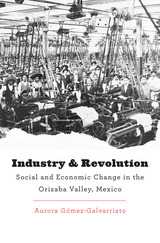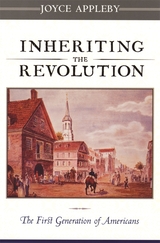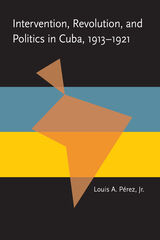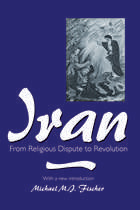7 start with I start with I



The Mexican Revolution has long been considered a revolution of peasants. But Aurora Gómez-Galvarriato’s investigation of the mill towns of the Orizaba Valley reveals that industrial workers played a neglected but essential role in shaping the Revolution. By tracing the introduction of mechanized industry into the valley, she connects the social and economic upheaval unleashed by new communication, transportation, and production technologies to the political unrest of the revolutionary decade. Industry and Revolution makes a convincing argument that the Mexican Revolution cannot be understood apart from the changes wrought by the Industrial Revolution, and thus provides a fresh perspective on both transformations.
By organizing collectively on a wide scale, the spinners and weavers of the Orizaba Valley, along with other factory workers throughout Mexico, substantially improved their living and working conditions and fought to secure social and civil rights and reforms. Their campaigns fed the imaginations of the masses. The Constitution of 1917, which embodied the core ideals of the Mexican Revolution, bore the stamp of the industrial workers’ influence. Their organizations grew powerful enough to recast the relationship between labor and capital, not only in the towns of the valley, but throughout the entire nation.
The story of the Orizaba Valley offers insight into the interconnections between the social, political, and economic history of modern Mexico. The forces unleashed by the Mexican and the Industrial revolutions remade the face of the nation and, as Gómez-Galvarriato shows, their consequences proved to be enduring.

Born after the Revolution, the first generation of Americans inherited a truly new world--and, with it, the task of working out the terms of Independence. Anyone who started a business, marketed a new invention, ran for office, formed an association, or wrote for publication was helping to fashion the world's first liberal society. These are the people we encounter in Inheriting the Revolution, a vibrant tapestry of the lives, callings, decisions, desires, and reflections of those Americans who turned the new abstractions of democracy, the nation, and free enterprise into contested realities.
Through data gathered on thousands of people, as well as hundreds of memoirs and autobiographies, Joyce Appleby tells myriad intersecting stories of how Americans born between 1776 and 1830 reinvented themselves and their society in politics, economics, reform, religion, and culture. They also had to grapple with the new distinction of free and slave labor, with all its divisive social entailments; the rout of Enlightenment rationality by the warm passions of religious awakening; the explosion of small business opportunities for young people eager to break out of their parents' colonial cocoon. Few in the nation escaped the transforming intrusiveness of these changes. Working these experiences into a vivid picture of American cultural renovation, Appleby crafts an extraordinary--and deeply affecting--account of how the first generation established its own culture, its own nation, its own identity.
The passage of social responsibility from one generation to another is always a fascinating interplay of the inherited and the novel; this book shows how, in the early nineteenth century, the very idea of generations resonated with new meaning in the United States.



READERS
Browse our collection.
PUBLISHERS
See BiblioVault's publisher services.
STUDENT SERVICES
Files for college accessibility offices.
UChicago Accessibility Resources
home | accessibility | search | about | contact us
BiblioVault ® 2001 - 2024
The University of Chicago Press









